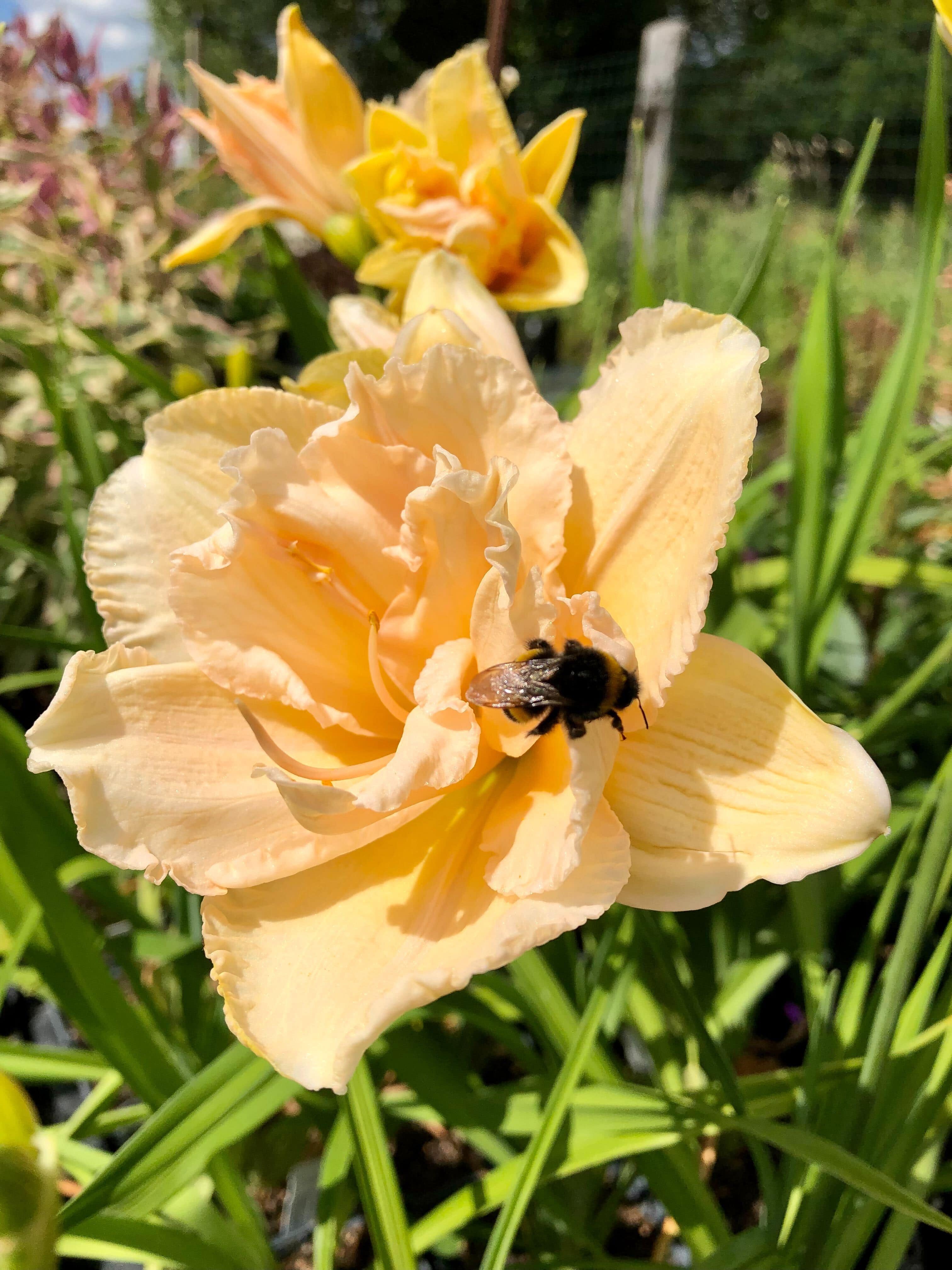The environmental challenges facing the horticultural sector are considerable. On the one hand, plants are major carbon sponges: they are capable of capturing and storing CO2 from the atmosphere. At growers', nurseries', and gardeners' sites, plants capture CO2 from the atmosphere through photosynthesis and store it in wood and soil. The planting of green spaces, gardens, terraces and balconies also contributes to soil vegetation cover. On the other hand, the industry's liabilities are considerable. Traditionally insensitive to its environmental impact, horticulture is a major consumer of pesticides, fertilisers, plastic, water, and greenhouse heating. We have defined action levers for ourselves and our suppliers.
Developing a sustainable model
Treatments and pesticides
- In our greenhouses, we respect the growth cycles of our plants and do not force them on. As a result, they are robust and have strong roots.
- Since 2015, we have maintained a zero chemical treatment policy on the farm: herbicides, fungicides, and insecticides are banned to protect biodiversity, preserve the greenhouse ecosystem, and protect the health of our employees.
- When we do treat, it's always sparingly, and only with organic farming-approved (UAB - Utilisables en Agriculture Biologique) treatments.
- To combat pests - aphids in particular - we favour the use of organic treatments (lacewing larvae, for example).
- In our ranges, 30% of the vegetable plants and 15% of the fruit trees we sell are organically grown. 60% of our fertilisers and growing media (potting soil, mulch) areorganic farming-approved, and we sell virtually no so-called conventional treatment products.


Greenhouse heating
We do not heat our greenhouses. During cold spells, young plants are placed on heated trays with low electricity consumption, and less hardy plants are protected by winter covers.
Local sourcing
Today, over a third of our products are sourced locally: 31% of our plants are produced locally, within less than a 150 km radius from the company, and 42% are grown in France.
Reducing our environmental footprint
Water and energy management
- Water self-sufficiency: when we move to our new site at La Ferme de Premesques in 2023, we will be completely self-sufficient in water for irrigation purposes, thanks to the harvesting of rainwater and watering water, and storage in tanks. This will provide us with better quality watering thanks to lime-free rainwater, and we won't have to drill any wells around the farm.
- Energy self-sufficiency: the Ferme de Premesques is a low-energy building thanks to the thermal insulation of the buildings and solar panels on the roofs of the warehouses, which will cover 100% of our electricity needs. Heating for the offices will be provided by a renewable energy wood pellet boiler.
- 90% of our equipment is electric (around thirty machines).




Waste management
- We lose less than 1% of the plants we sell. We offer our unsold or unsuitable plants for sale in anti-waste baskets, with our Goody-Plant baskets, or via the "Too Good to Go" app. A trolley of out-of-date plants is also offered each week to company employees for their own gardens.
- Green waste and cardboard are 100% recycled internally. Cardboard is shredded on site to pack the plant parcels, and green waste is composted.
- Plastic packaging: thanks to our new Plastic-Free Ordering service, we enable our customers to eliminate an average of 500g of plastic per order. All plastic materials are replaced by recycled cardboard packaging.
- Horticultural pots from plastic-free orders are sorted. Half are reused in the circular economy: supplied to subcontracted growers for a new growing cycle or used for our own potting. The other half is recycled in a specialised circuit.




Our 2022-2026 action levers


1- Expanding our sustainable model.
• Growing 40% of our orchard and vegetable garden ranges organically by 2026.
• Making 75% of our fertilisers and growing media organic by 2026.
• Producing 20% of our ornamental range organically by 2026. Organically grown ornamental plants ranges are virtually non-existent as most of them have undergone chemical treatments before reaching our greenhouses. This is why we will be developing our own organic ornamental plant production chain.
• Enhancing our influence and reducing upstream chemical treatments of the plants we sell, through dialogue with our suppliers. This is a long and complex process which we initiated in 2022.
2- Local sourcing
• 40% of our plants will be sourced locally by 2026, with an emphasis on local production or our own production via the development of a network of local subcontractors.
Our move to a new site comprising 32 hectares of farmland will also enable us to host a programme to help young horticulturists set up in business via cultivation contracts guaranteeing an outlet at a fair price, technical support, and the provision of land.
3- Waste management
We aim to recycle and recover 99% of our waste, in particular:
• By reducing plant waste to 0.1% by 2023.
• By achieving 100% of our orders to be shipped plastic-free by 2025. We are looking for solutions for the non-recyclable plastic waste, film, and trays in which we receive plants from growers.
































